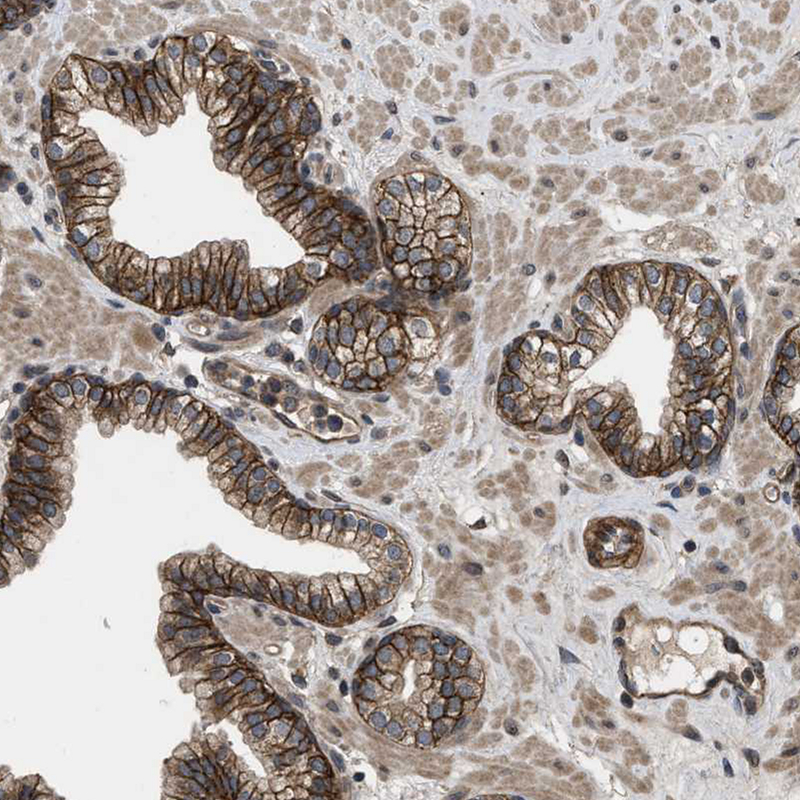![IHC-Fr analysis of human skeletal muscle tissue using GTX01977 Utrophin antibody [DRP3/20C5]. IHC-Fr analysis of human skeletal muscle tissue using GTX01977 Utrophin antibody [DRP3/20C5].](https://www.genetex.com/upload/website/prouct_img/normal/GTX01977/GTX01977_20200811_IHC-Fr_4_w_23053121_495.webp)
IHC-Fr analysis of human skeletal muscle tissue using GTX01977 Utrophin antibody [DRP3/20C5].
Utrophin antibody [DRP3/20C5]
GTX01977
ApplicationsImmunoHistoChemistry, ImmunoHistoChemistry Frozen
Product group Antibodies
ReactivityCanine, Human, Rat
TargetUTRN
Overview
- SupplierGeneTex
- Product NameUtrophin antibody [DRP3/20C5]
- Delivery Days Customer9
- Application Supplier NoteIHC-Fr: 1:2-1:10. *Optimal dilutions/concentrations should be determined by the researcher.Not tested in other applications.
- ApplicationsImmunoHistoChemistry, ImmunoHistoChemistry Frozen
- CertificationResearch Use Only
- ClonalityMonoclonal
- Clone IDDRP3/20C5
- ConjugateUnconjugated
- Gene ID7402
- Target nameUTRN
- Target descriptionutrophin
- Target synonymsDMDL, DRP, DRP1, utrophin, dystrophin-related protein 1
- HostMouse
- IsotypeIgG1
- Protein IDP46939
- Protein NameUtrophin
- Scientific DescriptionThis gene shares both structural and functional similarities with the dystrophin gene. It contains an actin-binding N-terminus, a triple coiled-coil repeat central region, and a C-terminus that consists of protein-protein interaction motifs which interact with dystroglycan protein components. The protein encoded by this gene is located at the neuromuscular synapse and myotendinous junctions, where it participates in post-synaptic membrane maintenance and acetylcholine receptor clustering. Mouse studies suggest that this gene may serve as a functional substitute for the dystrophin gene and therefore, may serve as a potential therapeutic alternative to muscular dystrophy which is caused by mutations in the dystrophin gene. Alternative splicing of the utrophin gene has been described; however, the full-length nature of these variants has not yet been determined. [provided by RefSeq, Jul 2008]
- ReactivityCanine, Human, Rat
- Storage Instruction-20°C or -80°C,2°C to 8°C
- UNSPSC12352203




